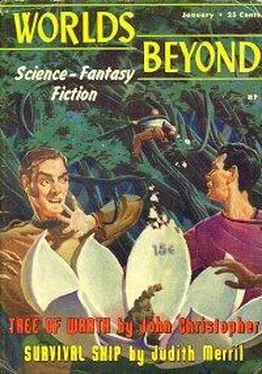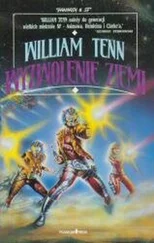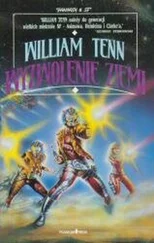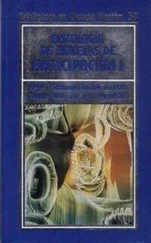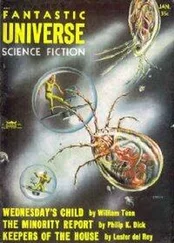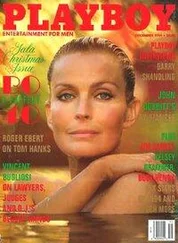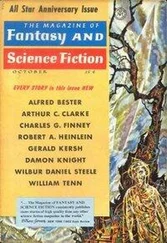William Tenn - Null-P
Здесь есть возможность читать онлайн «William Tenn - Null-P» весь текст электронной книги совершенно бесплатно (целиком полную версию без сокращений). В некоторых случаях можно слушать аудио, скачать через торрент в формате fb2 и присутствует краткое содержание. Год выпуска: 1951, Издательство: Hillman Periodicals, Inc., Жанр: Фантастика и фэнтези, на английском языке. Описание произведения, (предисловие) а так же отзывы посетителей доступны на портале библиотеки ЛибКат.
- Название:Null-P
- Автор:
- Издательство:Hillman Periodicals, Inc.
- Жанр:
- Год:1951
- ISBN:нет данных
- Рейтинг книги:3 / 5. Голосов: 1
-
Избранное:Добавить в избранное
- Отзывы:
-
Ваша оценка:
- 60
- 1
- 2
- 3
- 4
- 5
Null-P: краткое содержание, описание и аннотация
Предлагаем к чтению аннотацию, описание, краткое содержание или предисловие (зависит от того, что написал сам автор книги «Null-P»). Если вы не нашли необходимую информацию о книге — напишите в комментариях, мы постараемся отыскать её.
Null-P — читать онлайн бесплатно полную книгу (весь текст) целиком
Ниже представлен текст книги, разбитый по страницам. Система сохранения места последней прочитанной страницы, позволяет с удобством читать онлайн бесплатно книгу «Null-P», без необходимости каждый раз заново искать на чём Вы остановились. Поставьте закладку, и сможете в любой момент перейти на страницу, на которой закончили чтение.
Интервал:
Закладка:
The reign of Homo abnegus endured for a quarter of a million years. It was disputed finally—and successfully—by a group of Newfoundland retrievers who had been marooned on an island in Hudson Bay when the cargo vessel transporting them to new owners had sunk back in the twentieth century.
These sturdy and highly intelligent dogs, limited perforce to each other’s growling society for several hundred millennia, learned to talk in much the same manner that mankind’s simian ancestors had learned to walk when a sudden shift in botany destroyed their ancient arboreal homes—out of boredom. Their wits sharpened further by the hardships of their bleak island, their imaginations stimulated by the cold, the articulate retrievers built a most remarkable canine civilization in the Arctic before sweeping southward to enslave and eventually domesticate humanity.
Domestication took the form of breeding men solely for their ability to throw sticks and other objects, the retrieving of which was a sport still popular among the new masters of the planet, however sedentary certain erudite individuals might have become.
Highly prized as pets were a group of men with incredibly thin and long arms; another school of retrievers, however, favored a stocky breed whose arms were short, but extremely sinewy; while, occasionally, interesting results were obtained by inducing rickets for a few generations to produce a pet whose arms were sufficiently limber as to appear almost boneless. This last type, while intriguing both esthetically and scientifically, was generally decried as a sign of decadence in the owner as well as a functional insult to the animal.
Eventually, of course, the retriever civilization developed machines which could throw sticks farther, faster, and with more frequency. Thereupon, except in the most backward canine communities, Man disappeared.
Afterword
The army was where I began writing this story—somewhere in the European Theater of Operations, in 1944. I didn’t have a typewriter, but I did have an early ballpoint pen (bought in Greenock, Scotland, the evening after we disembarked from the troop ship) and a pile of blank V-Mail (V-Mail was the unfolded one-page letter forms distributed to overseas soldiers for writing home).
My first intention was to write a satire about the inherent mediocrity of officialdom, especially as exemplified by the officers of the Army of the United States. By the time I completed that draft, in Saarbrucken, Germany, 1945, I had changed my opinion of the army several times over—and, to my chagrin, the army never seemed to notice, or care.
After discharge, but before I began my professional career as a writer, I whittled away at the piece, picking first this target, then that. By 1947, I had settled on the most mediocre man I could see in a high position: Harry S Truman, the President of the United States. He, I admit to my shame and sorrow, was the original original of George Abnego.
(Why this S. and S.? Well, growing up has apparently been a constant process of growing up so far as I’m concerned. I now rank Truman very high in my opinion of U.S. presidents, a couple of micrometers or so behind Abraham Lincoln.)
I had also, years back, been very much impressed with the early science fiction of A.E. van Vogt. His “Black Destroyer” and “Discord in Scarlet” had been among my favorites when it came to stories about aliens. But when I read his The World of Null-A, however, I had immediately wondered, “Why limit it to non-Aristotelian logic? Why not non-Platonic politics? There’s the rub in our social history ever since the fifth century B.C!” Now, in 1947, I remembered that overlook of van Vogt’s. I worked that into the story and used it as a title.
I wrote and rewrote the story, intending it for The New Yorker. When I was seventeen, I had sent The New Yorker a cycle of stories that perhaps only an acned seventeen-year-old could write—“The Adventures of God” and “The Further Adventures of God Junior.” Instead of the expected printed rejection slip, I had received a postcard from the editor, Harold Ross (Harold Ross, himself, in his own handwriting!), inviting me to come up and see him about the stories. I went there in my best—and only—blue serge suit, seeing myself as the new Perelman, the latest Thurber, the latter-day Robert Benchley.
I didn’t even get to Ross’s office. He came to me outside, in the smallish reception room. He talked to me for a few minutes, asking me what I read, what other things I had written, just why I had set myself to write “The Adventures of God.” Then he handed me back the pieces I had sent in and touched me lightly on the shoulder. “We don’t need these,” he said. “But keep punching, keep writing. We’ll be publishing you one day.” And he watched me take the elevator down.
But I went home with the virus in me. No matter where I published first, no matter what book awards I might win, I knew I must fulfill Harold Ross’s promise—I must one day appear in The New Yorker.
Now, at last, in 1950 (I had been potschkeying with the story for three years) I felt I had the wherewithal to fulfill that promise. I took it to my agent, told him of the market it must go to. He read it and shrugged. “Could be,” he said.
Then, the next day, he called me and told me he’d sent it to Damon Knight’s new science-fiction magazine, Worlds Beyond.
Damon had liked it a lot and had immediately bought it for a hundred dollars.
“A hundred dollars!” I wept. “I intended it for The New Yorker.”
“A hundred dollars definite,” he said, “is better than The New Yorker maybe. You need the money to eat on.”
I really couldn’t argue with that last sentence. My ninety-dollar part of the check from Worlds Beyond bought a lot of groceries.
Well, at least, I said, the story will be noticed. It will be noticed and commented-on everywhere.
It wasn’t.
For a long time, there seemed to be only three people in the world who thought “Null-P” a particularly good story: myself, Damon Knight, and August Derleth, who used it in an anthology he edited. Everybody else ignored it. Then, a decade after its first publication, “Null-P” was especially noted by Kingsley Amis in his critical study, New Maps of Hell. Anthology requests began coming in from everywhere and references to it appeared in the most unexpected places. All right—maybe it isn’t all that good, but certainly it couldn’t have been that bad either for ten long years.
(By the way, Amis said that the satire in “Null-P” did not seem to be aimed at any one in particular. I would have quarreled bitterly with that definitely non-American Brit. By the time New Maps of Hell was published, I damn well knew who I had intended to satirize, who the most mediocre of leaders was. Eisenhower, I would have told him. It was President Eisenhower all along, I would have said. Eisenhower, who followed that great president, Harry S Truman.)
And how do I feel today about the story’s never having been submitted to The New Yorker? I feel as my mother would have put it:
“Oy, it’s The New Yorker’s loss. And The New Yorker’s loss is my loss.”
Written 1947/ Published 1950
Интервал:
Закладка:
Похожие книги на «Null-P»
Представляем Вашему вниманию похожие книги на «Null-P» списком для выбора. Мы отобрали схожую по названию и смыслу литературу в надежде предоставить читателям больше вариантов отыскать новые, интересные, ещё непрочитанные произведения.
Обсуждение, отзывы о книге «Null-P» и просто собственные мнения читателей. Оставьте ваши комментарии, напишите, что Вы думаете о произведении, его смысле или главных героях. Укажите что конкретно понравилось, а что нет, и почему Вы так считаете.
